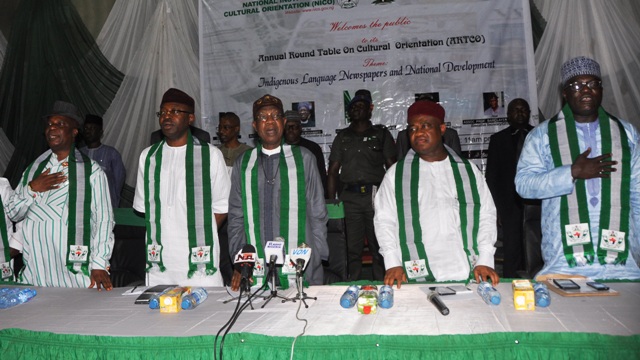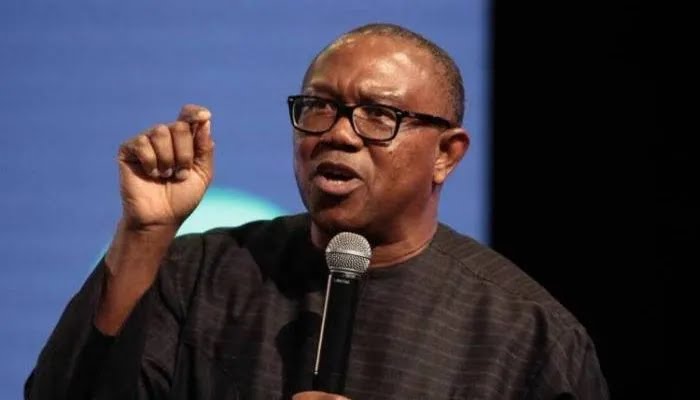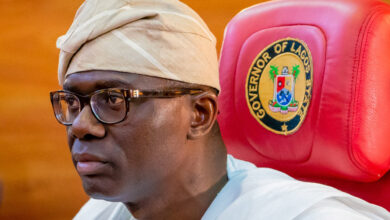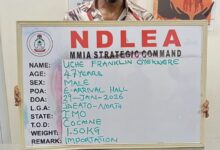Indigenous languages may go into extinction if…, FG warns

By Florence Israel, Abuja
The Minister said concrete measures must be taken to preserve indigenous languages, including the need for parents to ensure that their children were taught their indigenous languages, implementation of the teaching and learning of Nigerian indigenous languages as contained in the National Policy on Education as well as supporting and sustaining various platforms, such as the indigenous language newspapers, which promote the use of indigenous languages.
The Federal Government has declared the Nigerian indigenous languages as endangered species that could go into extinction in the near future if drastic steps are not taken to urgently reverse the disastrous trend.
Speaking on Monday at the Annual Round Table Workshop on Cultural Orientation themed, “”Indigenous Language Newspapers and National Development”, held in Kaduna and jointly co-hosted by the Federal Ministry of Information and Culture and the National Institute for Cultural Orientation ( NICO), the Minister for Information and Culture, Alhaji Lai Mohammed, cited situation reports to show the steady and remarkable decline in the usage of indigenous languages in the country.
He noted that indigenous language newspapers had a vital role to play in reviving the endangered indigenous languages if they could maximize their potentials.
“There is a remarkable decline in the usage of our indigenous languages by our children and youths; many of them cannot read or write in their mother tongue”, he lamented.
”It has been my desire since I assumed duties as Honourable Minister to convene a strategic stakeholders’ meeting to underscore the relevance of the indigenous language newspapers and to engineer a road
map for their sustenance in the face of formidable challenges. This explains why one of my first assignments in office was to visit identifiable indigenous newspapers like Alaroye, Iroyin Owuro, Rariya, Aminiya and Leadership Hausa,” Lai Mohammed said.
The Minister said concrete measures must be taken to preserve indigenous languages, including the need for parents to ensure that their children were taught their indigenous languages, implementation of the
teaching and learning of Nigerian indigenous languages as contained in the National Policy on Education as well as supporting and sustaining various platforms, such as the indigenous language newspapers, which
promote the use of indigenous languages.
He also listed other measures which must be taken into cognizance if Nigerian indigenous languages must be saved as the translation of the country’s treasure trove of literature, such as “The Lion and the Jewel”, “The Passport of Mallam Illia” and “Things Fall Apart”, into indigenous languages; adapting those classics into comics, graphic novels, TV shows as well as animated and live action feature films, leveraging on the role of the electronic media in disseminating, aggregating and curating indigenous languages and deploying digital
tools in ensuring the survival of Nigeria’s indigenous languages.
He therefore charged the participants at the workshop with the theme to painstakingly deliberate on the issues raised so as to come up with far-reaching recommendations that will guide government’s policy and action plan.
In his own presentation, the Chairman of the Leadership Group, Mr. Sam Nda-Isaiah, who was also the keynote speaker at the event, said indigenous language newspapers are key to any strategy at national development hence they should not be underestimated.
Mr. Nda-Isaiah further pointed out that for the indigenous language newspapers to be relevant, the high rate of collapse of such papers must be checked by those running them as a business, like any other newspaper.
In the same vein, the Executive Secretary of National Institute for Cultural Orientation (NICO), Mr. Barclays Ayakoroma explained that the Annual Round Table was aimed at enhancing the potentials of indigenous language newspapers to enable them serve as catalyst for cultural renaissance and grassroots mobilisation.









